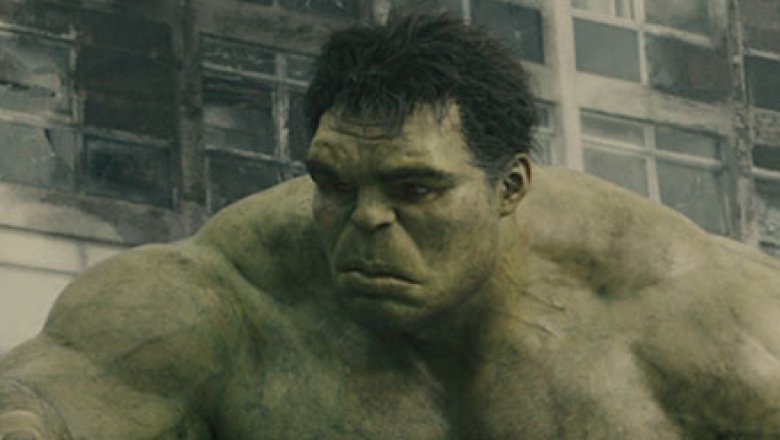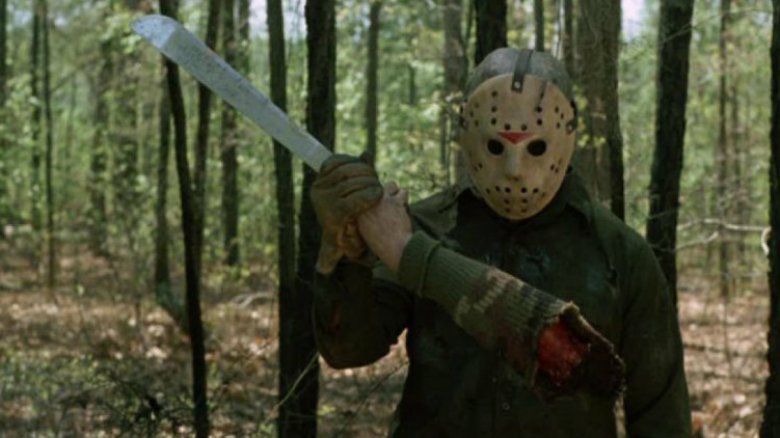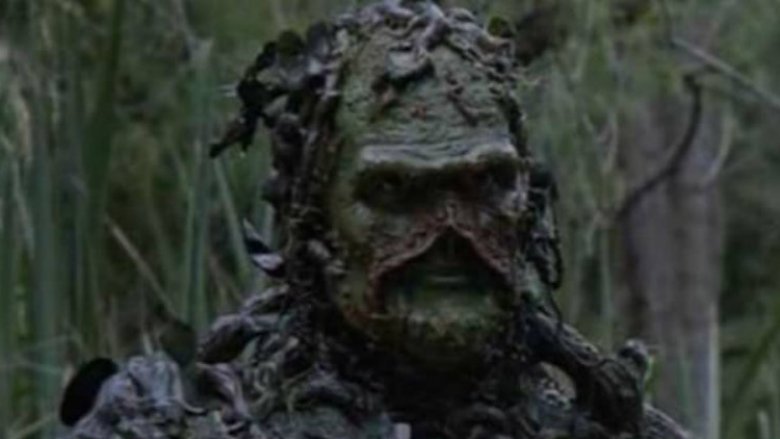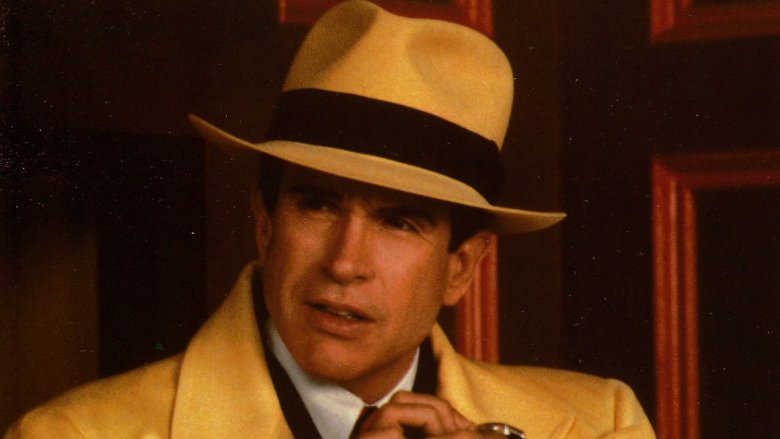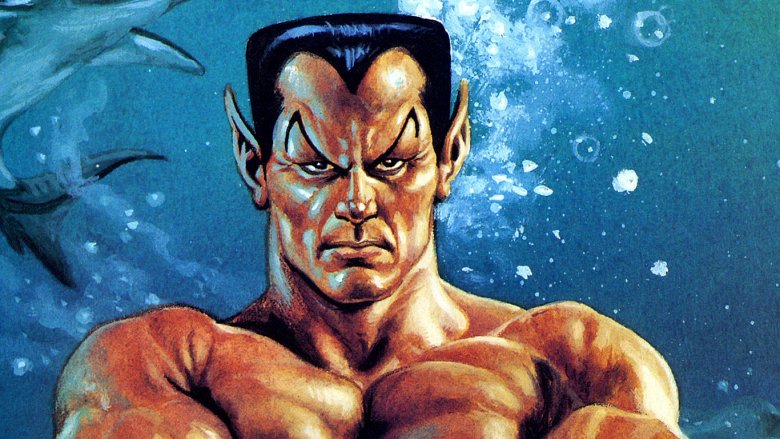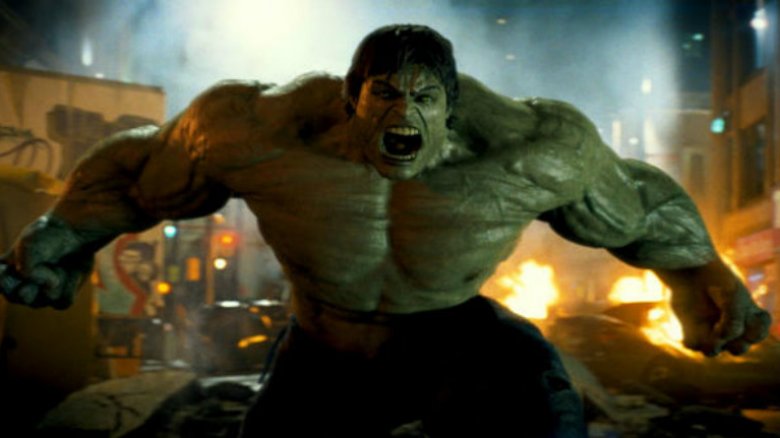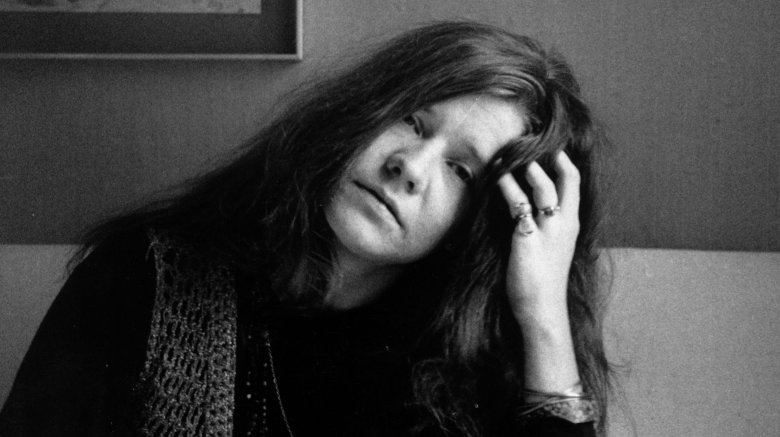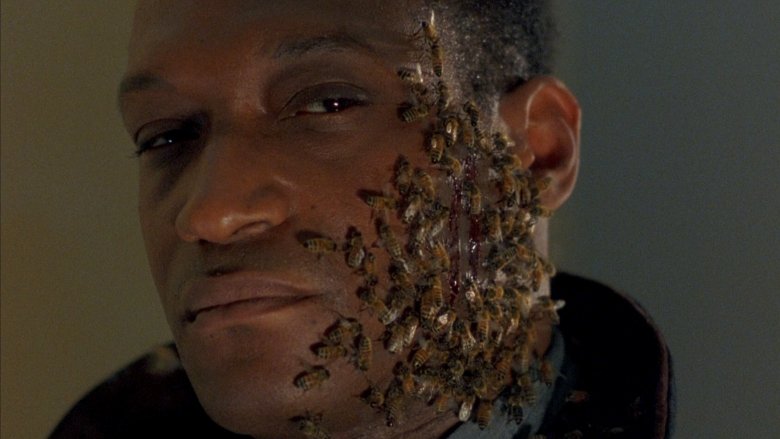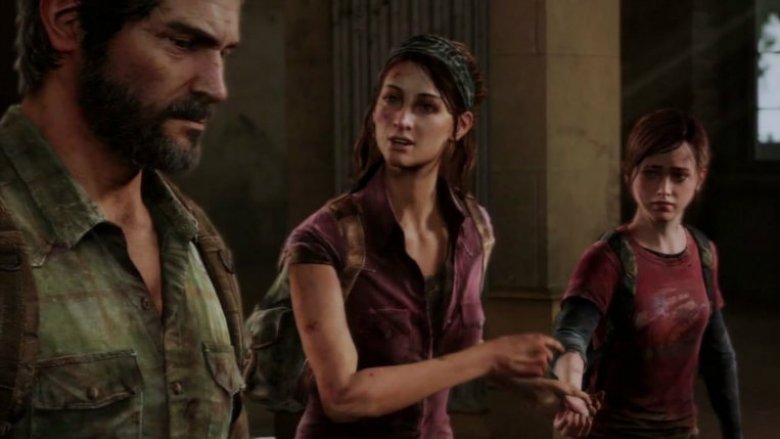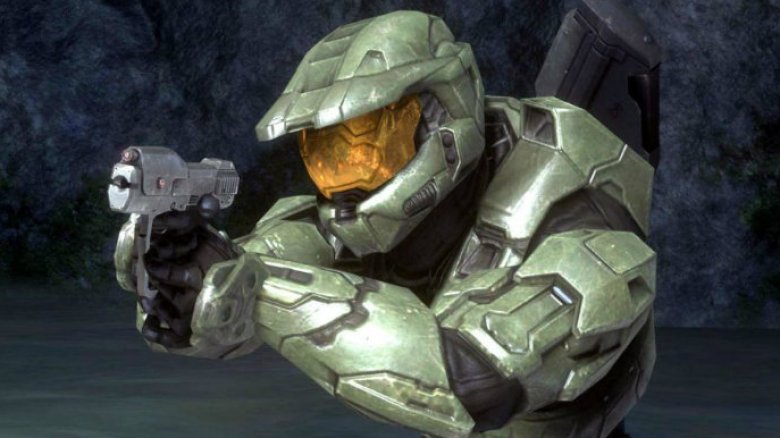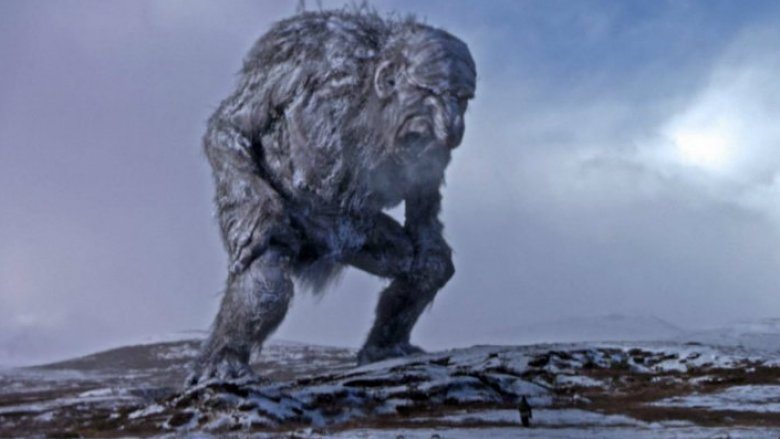Films Stuck In Limbo Because Of Rights Issues
It seems like more movies are being made than ever before these days as Hollywood continues to funnel countless prequels, sequels, and remakes into cinemas worldwide. However, audiences might be surprised to learn that not every film greenlighted by Hollywood actually makes it to screens. Far too often, projects are announced and expectations are hyped only for these films to languish in "development hell," never to see the light of day. While some of these projects are held back due to creative differences or scheduling conflicts, others are trapped, stuck in a state of pre-production (or, as some say, pre-pre-production) because of legal issues concerning the rights involved. So join us as we hold out hope for, and take a look at, a host of anticipated movies currently stuck in film limbo.
Friday the 13th, Part 13
Ever since the Friday the 13th franchise first launched in 1980, Jason Voorhees has slashed his way to the hearts of horror fans everywhere, although things have changed somewhat since his heyday. Back in 2009, a reboot simply titled Friday the 13th was met with dismal reviews but performed surprisingly well at the box office, prompting producers Brad Fuller and Andrew Form to forge ahead with another installment of the franchise.
Warner Bros. initially announced plans to release the sequel on August 13, 2010, but that was soon scrapped. Fuller explained that the 2009 reboot was produced as a joint effort between Paramount and Warner Bros.-owned New Line Cinema — the two studios shared the rights to the franchise — but both were now reluctant to press forward due to economic concerns. After much back and forth, Warner Bros. eventually gave up the rights for a Friday the 13th sequel, providing Paramount with the freedom they needed to move forward.
After more changes and delays, it was revealed that Friday the 13th, Part 13 would reboot the franchise again, but Paramount later cancelled the project, which means that the rights should revert to New Line/Warner Bros. in 2018. The only problem is that Victor Miller, the original screenwriter of Friday the 13th, claims that he wasn't employed when he wrote the film and now wants to terminate a grant of rights and reclaim ownership. What this means for the franchise remains unclear, but, for once, it looks like Jason won't be crawling out of (development) hell anytime soon.
3D Swamp Thing
Despite its campy aesthetic, Wes Craven's adaptation of the Swamp Thing comics fared surprisingly well back in 1982, more or less resonating with critics long before the superhero genre enjoyed a resurgence in popularity. However, a sequel titled The Return Of Swamp Thing was received far more negatively, forcing our hero to return to the quagmire from whence he came.
As a result of this, interest in a movie adaptation of the popular Vertigo comics character waned until 2009 when producer Joel Silver revealed that he wanted to revive the Swamp Thing property for a new 3D outing. Scripts for the project came in, but then Silver discovered that the legality surrounding the film rights for Swamp Thing were far more complicated than he initially realized.
Director Vincenzo Natali also expressed interest in making a Swamp Thing movie that would adapt the famed Alan Moore run of Swamp Thing comics, which have remained a fan favorite ever since he left the book in September, 1987. Unfortunately, Natali was unable to follow through with this idea due to "all the legal entanglements involved." Since then, talk of a Swamp Thing movie has remained quiet, although director Guillermo Del Toro did plan to include the character in his line-up for the Justice League Dark movie that never came to pass. Years passed since that announcement of Dark, and Warner Bros. struggled to replace Del Toro as he moved on to other projects like The Shape Of Water.
Dick Tracy 2
Based on a comics strip that first became popular in the 1930s, Dick Tracy was a huge smash for Warren Beatty in 1990, who directed, produced, and starred in this crime-based passion project. Despite the mixed reviews, Dick Tracy was nominated for seven Academy Awards and won three, including Best Original Song, Best Makeup, and Best Art Direction.
It didn't take long before the studio began formulating plans to film a sequel, but legal issues regarding ownership of the rights soon came into play. Beatty originally purchased the film and television rights to Dick Tracy in 1985 from Tribune Media Services before taking it to Walt Disney Studios. Years passed by, and no Dick Tracy sequel materialized. Tribune tried to reclaim the rights in 2002, but Beatty claims that the way they chose to do this was a direct violation of their original deal, which led to heated disputes between the two parties.
Eventually, a court ruled in Beatty's favor, which led to him filming a brief and bizarre Dick Tracy TV Special in 2008 to satisfy some kind of contractual requirement. Beatty continues to say that he will film a sequel, but, in the meantime, issues over the rights still prevent the story of Dick Tracy being told in a number of formats, including a potential TV show or a comic book relaunch. Now that Beatty is in his 80s, it's doubtful that a sequel will ever hit the streets.
Namor, The Sub-Mariner
As Marvel's "first mutant" and King of Atlantis, Namor the Sub-Mariner has played a prominent role in the comics over the years, regularly switching between hero and villain depending on his mood and current relationship with superhero and Fantastic Four matriarch Sue Storm. It's not surprising then to learn that Marvel executives have considered adapting Namor for the silver screen more than once, but it turns out that the rights to his character are even more complicated than the likes of Hulk, X-Men, and Fantastic Four.
As far back as 1997, there has been talk of bringing the King of Atlantis onto our screens, but the project didn't gain traction until director Chris Columbus was attached to direct an adaptation for Universal Pictures in 2004. Just one year later though, Columbus abandoned ship, forcing Universal to hire director Jonathan Mostow, but then the project fizzled out anyway.
However, interest in a Namor movie adaptation has been renewed recently thanks to the success of the ever-expanding Marvel Cinematic Universe, although legal issues remain a factor. While the rights to the X-Men and Fantastic Four belonged to Fox before they recently completed their deal with Marvel, the situation regarding Namor is far more complicated than that. Although the King of Atlantis is now technically owned by Marvel, studio president Kevin Feige has revealed that the situation is still tangled thanks to older contracts that involve other parties. And now DC has a rival for Namor in the form of Aquaman too...
The Incredible Hulk 2
As Marvel's Cinematic Universe continued to grow, it was always inevitable that each hero's solo debut would generate a number of sequels. Thor, Iron Man, Captain America, all star in trilogies of their own, yet there's one particular Marvel hero who still hasn't been given his own chance to shine in a sequel.
Traditionally, the Green Goliath doesn't play well with others, but ever since he starred in 2008's The Incredible Hulk, Marvel has been forced to include Bruce Banner as part of the supporting cast in one movie or another, rather than give him a film of his own, because of legal issues with Universal Studios. Up until 2008, Universal owned both the production rights and distribution rights to any film starring the Hulk, but then the production rights reverted back to Marvel. This allowed the studio to include Bruce Banner's green alter-ego in films like Thor: Ragnarok, but prevented Marvel from producing The Incredible Hulk 2.
This doesn't mean that the Hulk will never star in a solo film ever again though. There's always a chance that Marvel could negotiate a new deal with Universal to bring the Hulk back fully into the fold, just like the Sony deal that incorporated Spider-Man into the MCU. After all, The Incredible Hulk was received fairly well back in 2008, and the character's popularity has continued to grown since Mark Ruffalo took on the role, so it would make perfect sense for Marvel to try and smash the legal issues that surround this beloved character once and for all.
Janis Joplin Biopic
Rock legend Janis Joplin met a tragic end at the tender age of 27, dying of a heroin overdose. Since her death in 1970, Hollywood has tried to recapture the magic of Joplin's stage performances on screen, but each attempt has crashed and burned thanks to troublesome legal issues that have made cry babies of us all.
Joplin's brief rise to fame, and the iconic discography she created, has attracted a whole host of actresses and singers keen to tackle the role, including P!nk, Zooey Deschanel, Renee Zellweger, Brittany Murphy, Courtney Love, and Reese Witherspoon. Unfortunately, each of these projects fizzled out due to rights issues regarding the music or just because of other career obligations.
Of these myriad attempts to kick-start a Janis Joplin biopic, one of the most interesting came from Big Little Lies director Jean-Marc Vallée, who enlisted Amy Adams to play the lead role. Titled Get It While You Can, the project was officially cancelled in 2017 due to lawsuits involving the production companies. The pair have since moved on to adapting the Gillian Flynn book Sharp Objects instead. In late 2016, Michelle Williams was cast to star in yet another attempt at bringing Janis Joplin's story to the screen. Little mention has been made of the film since it was announced — shooting was reportedly set to begin in May 2017. It looks then like this project may have met the same kind of obstacles the others encountered too.
Candyman 4
Back in the early '90s, Tony Todd's portrayal of an urban legend brought to life joined the ranks of horror's greatest monsters, but subsequent sequels in the Candyman franchise struggled to find the same success. After Candyman: Farewell to the Flesh and Candyman: Day of the Dead flopped at the box office, interest waned until 2004, when star Tony Todd revealed that there were plans for a fourth installment.
However, questions arose regarding who the true owners of the Candyman franchise were, which subsequently put the possibility of a fourth chapter in jeopardy. The problem, as Todd himself pointed out, lies in figuring out who really owns the franchise at this point. "In dividing the first Candyman's profits, the ownership went from Propaganda, to Sony, to Columbia, then to Artisan. Then Artisan became Lions Gate," he explained. "As soon as it's all straightened out, and it's determined who has to be paid before the film even gets written, then the movie will move forward."
Rumors suggest that the film would have been standalone and may have even pitted the Candyman against Pinhead, another Clive Barker creation who terrorized fans in the Hellraiser franchise. However, the issues that Todd outlined have unfortunately prevented the Candyman from returning to our screens over the past decade. Perhaps if we say his name in the mirror five times, a fourth installment may finally be released.
The Last Of Us
First released on the PlayStation 3 in June, 2013, The Last Of Us became one of the best-selling video games on the console and received universal acclaim for it's stunning depiction of a post-apocalyptic world. Few were surprised when game director Neil Druckmann announced he was working on a movie adaptation of the story soon after, which was set to be produced by horror auteur Sam Raimi.
Unfortunately, the survival horror game may take longer to reach cinemas than first anticipated. During an interview with IGN, Raimi explained, "We went to Neil ... hoping to get the rights like we do any project ... [but] he sold his rights to Sony." Raimi also added he's still attached to produce, but it's all up to Sony at this point.
On the plus side, a sequel to the original game is reportedly set to be released on PS4 some time in 2019, although there is currently no official release date.
Halo
When Microsoft first released the Xbox, they were an unproven entity in the console marketplace, but the success of the first Halo game quickly put them on the map, selling millions of copies in the following years. Since then, the financial and critical acclaim that Halo received has spawned an entire franchise, including comic book adaptations and various other merchandise. It was only a matter of time then before Hollywood would take interest too.
In 2005, Ex Machina director Alex Garland wrote a script for Microsoft that they could then shop around to various studios. The strategy worked and Fox reached an agreement to release the film alongside Universal. Peter Jackson was set to executive produce and Guillermo Del Toro would direct; the latter was replaced by District 9 director Neill Blomkamp after Hellboy II became a priority. Writers D.B. Weiss and Josh Olson reworked Garland's original script in 2006, but that didn't stop Fox from threatening to abandon the project. This in turn led Universal to try and cut down the deals originally made with Weiss and Olson, but both refused the offer, leaving the Halo movie in a weird limbo, with the rights trapped between Fox and Universal.
Since then, a web series titled Forward Unto Dawn was developed in 2012 and Steven Spielberg is reportedly working on a TV adaptation for Showtime, although it's hard to see how the prolific director can prioritize Halo anytime soon considering that, after his upcoming Ready Player One, he'll be moving onto the next Indiana Jones movie soon after.
Troll Hunter (U.S. Remake)
Back in 2011, Norwegian director André Øvredal enjoyed crossover success in the U.S. with a found footage mockumentary called Troll Hunter. Starring well-known Norwegian comedians such as Otto Jespersen alongside the likes of relatively unknown actors, the film's unique take on dark fantasy left a mark on viewers who wondered if the film could spawn a franchise.
The rights were quickly snapped up for a U.S. remake following the film's release, and director Neil Marshall was on board to direct following his success on The Descent. Then everything suddenly went quieter than a troll hunter lying in wait for his prey. In the meantime, Øvredal found further crossover success with the English-language horror movie The Autopsy of Jane Doe. While promoting his new project, Øvredal revealed that the original deal for an American remake of Troll Hunter had expired and that the rights had reverted back to him. According to Øvredal, it didn't seem likely that a new remake deal would be pursued, which suggests that Troll Hunter will never become a Hollywood franchise.
U.S. remakes of foreign horror movies are often hit-and-miss at the best of times, so this is one project that fans might actually be happy to see languish in development hell. Any hope for a sequel now lies with Øvredal, who may one day wish to return to his filmmaking roots with another Norwegian installment of the Troll Hunter story.
